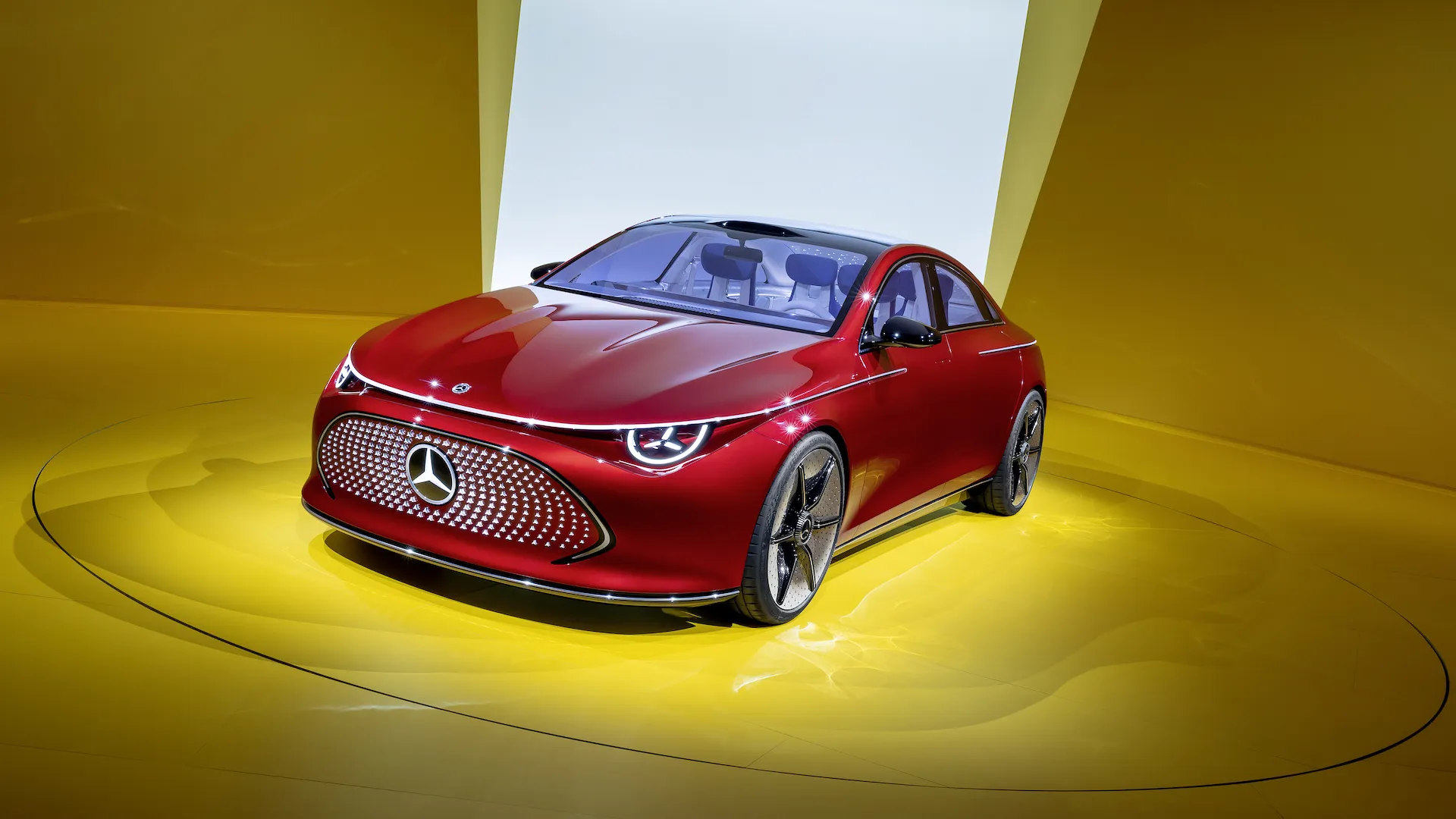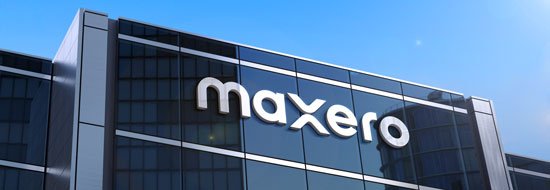Mercedes-Benz is delaying an EV sales target that would have seen the automaker go all-electric in at least some markets by 2030, Reuters reports.
The automaker told investors Thursday that it now expects EVs and hybrids to account for up to 50% of its sales by 2030. In 2021 Mercedes said it aimed to hit the 50% sales target in 2025, and sell only EVs where market conditions allowed by 2030.
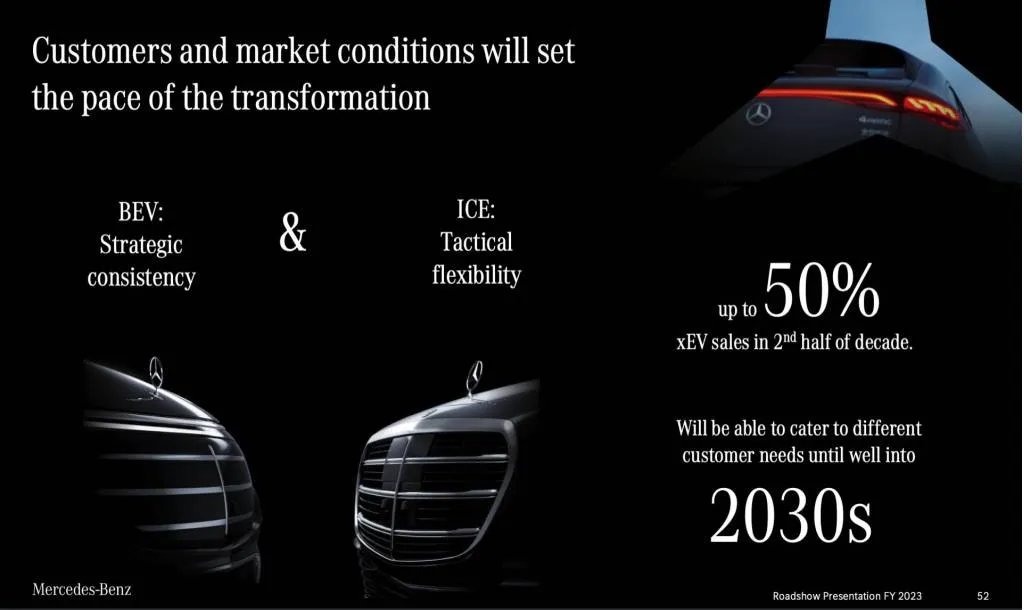
Mercedes-Benz BEV plans – Feb. 22, 2024
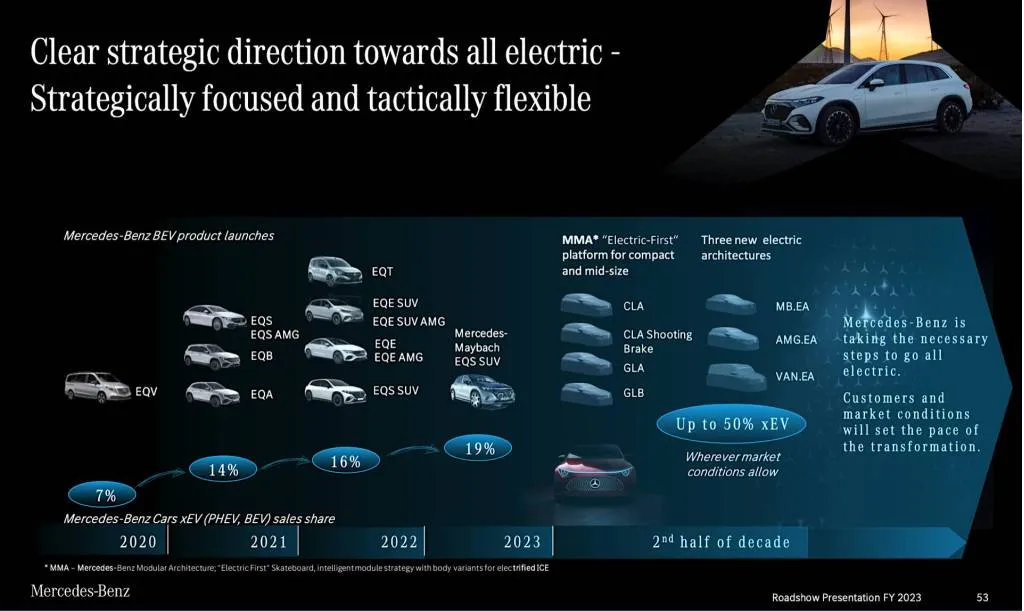
Mercedes-Benz BEV plans – Feb. 22, 2024
Mercedes CEO Ola Källenius told investors that the automaker would update its internal-combustion powertrains, mentioning a new 4-cylinder engine as part of a hybrid powertrain in development.
Källenius said these updates will make it “almost like we will have a new lineup by 2027 that will take us well into the 2030s.”
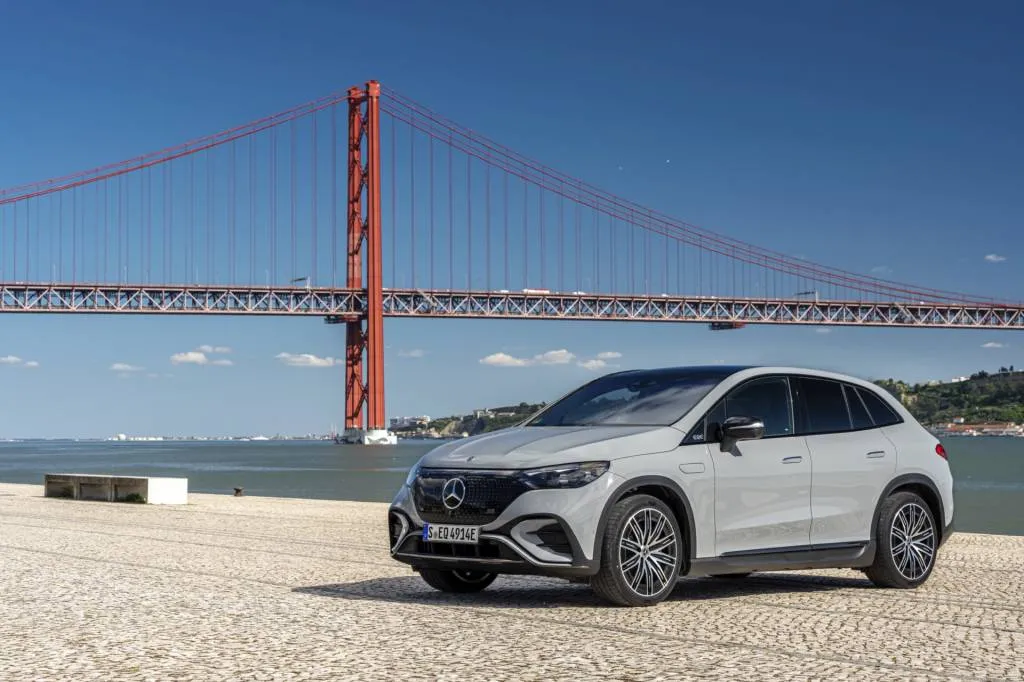
2024 Mercedes-Benz EQE SUV
Mercedes sped up its development of EVs back in 2017, then scheduling a suite of EVs—led by EQS and EQE—to arrive three years earlier than originally planned (2022 vs. 2025). Its U.S. EV lineup now includes sedan and SUV versions of both the EQS and EQE, all of which are based on an EV-specific platform, as well as the EQB, derived from the gasoline GLB-Class crossover SUV. The automaker also plans to start selling eSprinter electric vans in the U.S. later this year.
It’s still building toward volume rather than exclusivity with its Mercedes-Benz Modular Architecture (MMA) platform, coming soon, and emphasizing efficiency and range. Previewed by the Concept CLA-Class first shown in 2023, it’s set to underpin four compact EVs in multiple body styles.

Mercedes-Benz EV Charging Hub in Sandy Springs, Georgia
In the meantime, Mercedes has pushed ahead with its own EV fast-charging hubs. The automaker is aiming to create more than 2,000 of these hubs, offering a combined 10,000 connectors, globally, by the end of the decade. Mercedes opened the first hub near its Atlanta headquarters in late 2023, and plans to continue focusing on North America for the initial rollout.
[ad_2]
Source link
